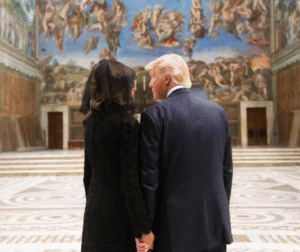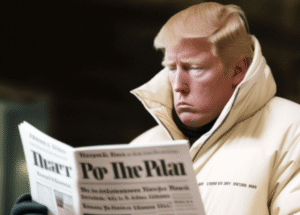#TrumpJr #DeFi #Cryptocurrency #Blockchain #FinanceTech #DigitalCurrency #NotAMemeCoin #BankingInnovation
Donald Trump Jr. recently made headlines in the financial technology sector with the announcement of his newest venture, a Decentralized Finance (DeFi) platform. This revelation has sparked interest and speculation within both the tech and financial communities, particularly because Trump Jr. made it clear that this project is not to be dismissed as another meme coin—those often whimsical and speculative cryptocurrencies that periodically capture the market’s attention. Instead, his aim is to establish a serious and innovative platform that offers a credible alternative to traditional banking systems.
Decentralized Finance, or DeFi, represents a shift away from centralized financial systems and institutions, such as banks, towards a more open, accessible, and transparent financial ecosystem, facilitated by blockchain technology. Trump Jr.’s endorsement of DeFi indicates an alignment with the vision of dismantling traditional financial barriers and democratizing financial services. By stressing that his project is not a meme coin, Trump Jr. is distancing his venture from the volatility and perception of frivolity that often accompanies such digital currencies. His platform seeks to leverage blockchain’s capabilities to offer users more control over their financial transactions, potentially reducing the fees and restrictions imposed by conventional banks.
The implications of Trump Jr.’s dive into the DeFi space could be significant, not just for the technology and finance industries but also in terms of regulatory considerations. As more high-profile figures enter the blockchain and DeFi arenas, their projects are likely to attract greater scrutiny from regulators and financial authorities, who are already grappling with the challenges of overseeing this rapidly evolving landscape. This endeavor could also signify a growing interest and acceptance of DeFi solutions among traditional investors and the general public, contributing to the broader adoption and innovation within digital finance.
Moreover, targeting banks directly places Trump Jr.’s project at the forefront of the ongoing debate regarding the future of finance. Will traditional banking institutions adapt to this emerging trend, or will they be disrupted by the advent of platforms that offer more efficiency, security, and user autonomy? As the details of this DeFi initiative unfold, industry watchers will be keenly observing its development and potential impact on the financial sector’s status quo.







Comments are closed.